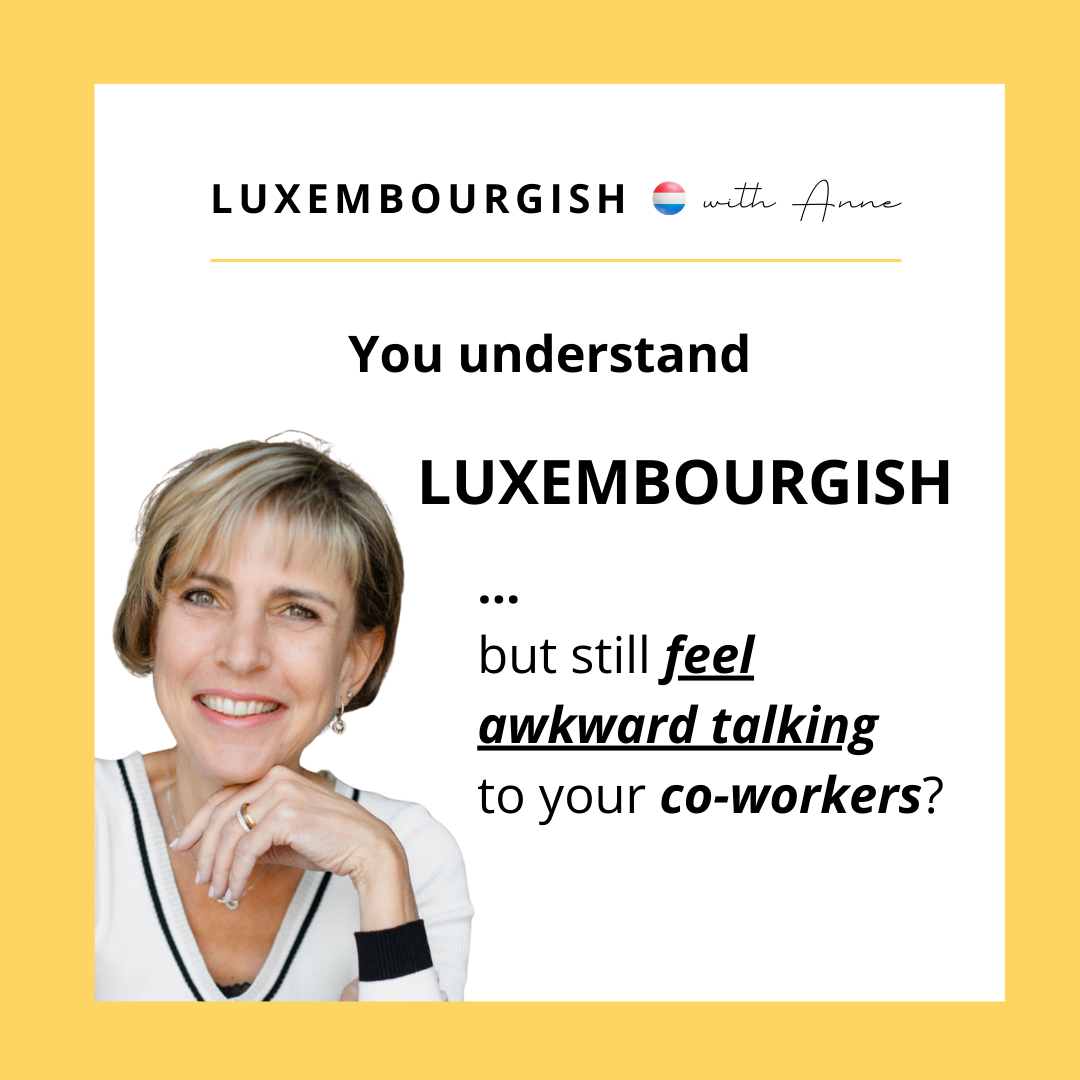Today I will talk about the 5 Luxembourgish vowels and so you will learn how to pronounce these 5 vowels.
There are more than 20 Luxembourgish vowel sounds BUT only 5 Luxembourgish vowel letters: A, E, I, O, U.
How does that work?
1 Let’s use the letter “e” as a first example: when you see the letter “e” in a Luxembourgish word it can be pronounced in a few different ways:
- Short as in prett
- Very short as in déck
- The lazy ë sound as in ëmmer
- Long as in legal,
- Longer as in een
- Unstressed as in goen
As you can see we have here 6 different sounds only with the letter “e” and there are some other sounds with this letter “e”.
2 AND the Luxembourgish Ëmlauter so “ä”, “ö” and “ü”and the diphtongs such as “éi” “ou” “au” … also count as Luxembourgish vowels.
To help you practise the different “e” sounds, the Ëmlauter and the diphtong sounds I have made separate videos about these sounds which are all part of My Luxembourgish Pronunciation Online Course.
To learn straight away the pronunciation of the vowels, I suggest to watch the video version of this lesson: HERE
Pronunciation of the Luxembourgish Vowels
Let’s start with a so in Luxembourgish
A
It is pronounced either long or short
Short as in Kapp (head)
Long as in Kap (cap), Gaart (garden)
How can you know if it is pronounced long or short? Well if a is followed by 1 consonant like in Kap or by another a like in Gaart, then a is long and when it is followed by 2 or more consonants it is short like in Kapp. We have 2 pp after a. So long vowel sounds and short vowel sounds are important in Luxembourgish.
The short sound is a like in
hatt (she), Mamm (mother), Papp (father)
The long sound is a like in
Kaz (cat), kal (cold), Apel (apple)
E
The short sound is e like in
Enn, Becher, prett
The long sound is ee like in
een (one), eelef (eleven), Meter (meter)
I
The short sound is i like in
Ticket (ticket), midd (tired), siwwenzéng (17)
The long sound is i like in
siwen (seven), Fliger (plane), Kiischt (cherry)
O
The short sound is o like in
Sonn (sun), botzen (to clean), schonn (already)
The long sound is o like in
Boma (grandmother), rosen (angry), loossen (to let)
U
The short sound u as in
gutt (good), wunnen (to live), Kuss (kiss)
The long sound is u as in
Tut (plastic bag), Luucht (lamp) Fuuss (fox),
Let’s summarise: When a vowel is followd by 1 consonant or by the same vowel it is pronounced looooonnng.
And when followed by 2 or more consonants it is pronounced short.
Now this is the general rule, but there are though some exceptions – as in any language.
Example: As you have learned in this lesson the vowel a is pronounced long in this word: wat but why is it then pronounced short in this word: mat??
Learn more about this important rule and important exceptions in the Luxembourgish Pronunciation Course.
Your homework is to practise what you have learnt today by watching the video. Watch to the Video again and try to repeat after me. In my pronunciation online course you can learn all the sounds of Luxembourgish, with lots of practice exercises – with FUN!!
Speak clearly, natural and with confidence: Start today to master the sounds of Luxembourgish so that you can go ahead in everyday life (without worrying about whether or not people will understand you or switch to another language) and speak with confidence in any Luxembourgish language test:




